Graham Reid | | 5 min read
John McLaughlin: Seven Sisters (from Live in Paris, 2000)
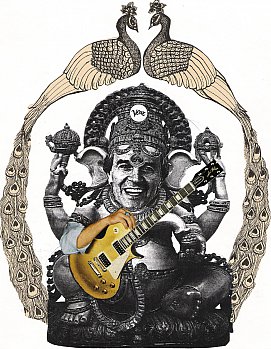
The opening track on guitarist John
McLaughlin's Live in Paris, usefully serves as a microcosm of his
career. It starts slow, melodic and considered with McLaughlin
peeling off memorable phrases, then picks up speed to hit a furious
pace as he skitters around the fret-board like ferret freebasing.
Things then cut back to irresistible
refinement as it gathers in its melodic sharpness again, and seems at
ease with itself as it lopes comfortably home.
Yep, that's about the career-so-far of
68 year old McLaughlin.
McLaughlin came to wide attention when
he played on Miles Davis' seminal In a Silent Way and Bitches Brew
albums in the late Sixties. And then he became the greatest living
exponent of jazz-fusion when he formed the Mahavishnu Orchestra,
which was, to be blunt, as revolutionary as it was sometimes
unmitigated shit.
With McLaughlin’s incendiary guitar
leading the way, MO redefined the parameters of jazz-fusion which
Davis had laid down -- but it also introduced the word 'migraine' to
the jazz vocabulary.
McLaughlin and violinist Jerry Goodman
could not only play faster than anyone on the planet, night after
night they seemed determined to prove it. And the most scary thing?
These guys weren't cracked-up to the frontal lobe, they were as
straight as a nun in traction
That's what having a guru meant back in
the early Seventies: intensity, and not much fun.
McLaughlin's subsequent group Shakti
was where he started making sense and his three mid-Seventies albums
under that band name plus his much under-rated Electric Guitarist
album of 78 (with guests Carlos Santana and players such as Chick
Corea whose careers were in jazz, not rock) were almost an apology
for what went before.
McLaughlin is one of those guitarists
for who the technically impossible is effortless. Fortunately – unlike
Joe Satriani and Yngwie Malmsteen and those guys Guitar Player
magazine keep banging on about – he came from blues/jazz and so had
models and mentors along the way. The rock guys had to rely on their
own pool of ideas. And look where that got them, huh?
Yorkshire-born McLaughlin's mother was
a violinist, his siblings are all musical, he's mostly self-taught
and studied blues players as a pre-teen.
He moved to London to play in bands and
loose units alongside the likes of Clapton (who was but five years
away from being proclaimed God) and, like so many of his peers, was
smitten by the genius of sitar player Ravi Shankar. He became
attracted to eastern philosophies and music.
His debut album Extrapolations of 69
with John Surman (saxophones), Brian Odges (bass) and Tony Oxley
(drums) is considered a classic of the decade and a summation of the
small group playing of the time.
It also anticipated jazz-rock fusion of
the Seventies, which is doubtless why he ended up with Davis just as
the great trumpeter was about to redefine jazz again, this time
incorporating rock's mannerism.
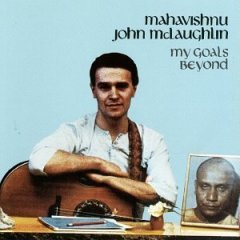 After Davis, McLaughlin took fusion to
its often-illogical conclusions with the spiritually inspired
Mahavishnu Orchestra. It went too fast to last and, despite reviving
the concept after a brief hiatus with French violinist Jean Luc Ponty
in the place of Goodman, it seemed all over bar the screaming
headache.
After Davis, McLaughlin took fusion to
its often-illogical conclusions with the spiritually inspired
Mahavishnu Orchestra. It went too fast to last and, despite reviving
the concept after a brief hiatus with French violinist Jean Luc Ponty
in the place of Goodman, it seemed all over bar the screaming
headache.
The Orchestra did leave behind two
excellent albums however, The Inner Mounting Flame and Birds of Fire,
although my pick is the much more measured My Goals Beyond from 1970.
The way out of electric hot-rodding
proved to be Shakti, an Indo-jazz group which had the same energy,
pace and virtuosity of the MO, but which reined it in through
memorable acoustic music, and allowed the guitarist (on a specially
constructed instrument to explore the nuances of Indian microtones
and scales.
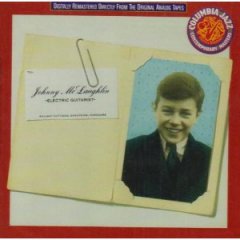 By the late Seventies he was keen to
reposition himself musically and within the market: Johnny
McLaughlin, Electric Guitarist -- which wittily came in a cover with
a reproduction of the business card he had a kid in Yorkshire -- put
him squarely back in the jazz business.
By the late Seventies he was keen to
reposition himself musically and within the market: Johnny
McLaughlin, Electric Guitarist -- which wittily came in a cover with
a reproduction of the business card he had a kid in Yorkshire -- put
him squarely back in the jazz business.
Throughout the Eighties his path was
like a mature reconsideration of where he had been: he played
exceptionally well received acoustic concerts with Paco De Lucia and
Al Di Meola (their live One Night in San Francisco of '80 was a huge
seller), played on Davis’ You’re Under Arrest, revived the
Mahavishnu name, undertook commissions for guitar concertos, worked
with tabla drummer Trilok Gurtu and then, in the early Nineties, put
together an excellent trio with organist/trumpeter Joey DeFrancesco
and drummer Dennis Chambers.
That was the line-up I saw in the
mid-Nineties at one of those famous New York clubs. As a fan of some
of his by-then almost 30 year career there were a lot of questions I
wanted to hear answered.
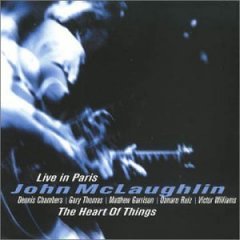 But to be honest, the big stupid one
was simply, will he play really really fast?
But to be honest, the big stupid one
was simply, will he play really really fast?
And you couldn’t help note that as
the night progressed the note count was climbing.
Good ol' Johnny, if there were more to
be said, he'd say it.
In one way his Live in Paris album is like Electric Guitarist and The Promise of '95 in that
it too summed up and explored again various sides of his personality:
a lovely ballad in Fallen Angels, intelligent fusion, and on Mother
Tongues he and the small ensemble revive the best of the lightning
spirit that was the Mahavishnu Orchestra. It wasn't the best album of
his career but was some considerable distance from his worst.
In a way it is a small primer of a long career, but worth investigating for
its own sake.
A microcosm, if you will.
And sometimes it goes really really
fast.

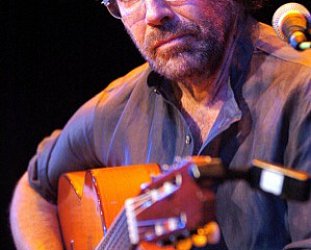
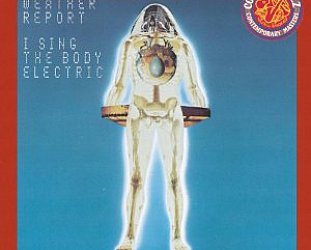
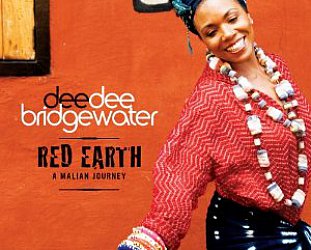
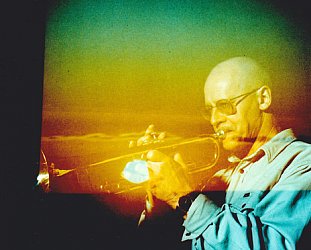
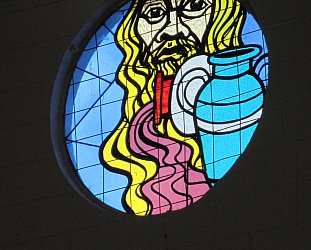

Mike P - Aug 5, 2021
I have quite a number of Mahavishnu Orchestra albums and a number of John's solo work or work with other musicians such as Carlos Santana. I think the album Electric Guitarist is a great album, so how come it got a summary of underrated? Did not sell well maybe? I have also just finished reading Carlos Santana's auto biography 'The Universal Tone' where there are numerous references to John, Mahavishnu, Sri Chinmoy (who gave the name of Mahavishnu to John, Miles Davies etc.
Savepost a comment